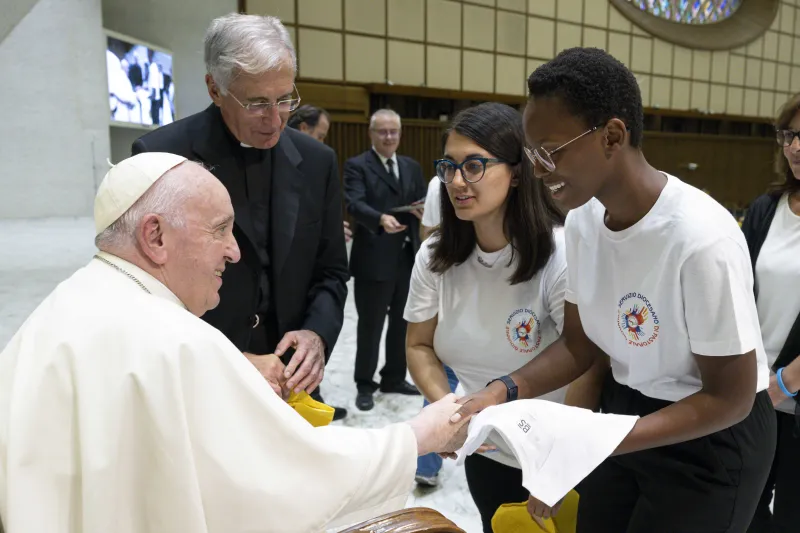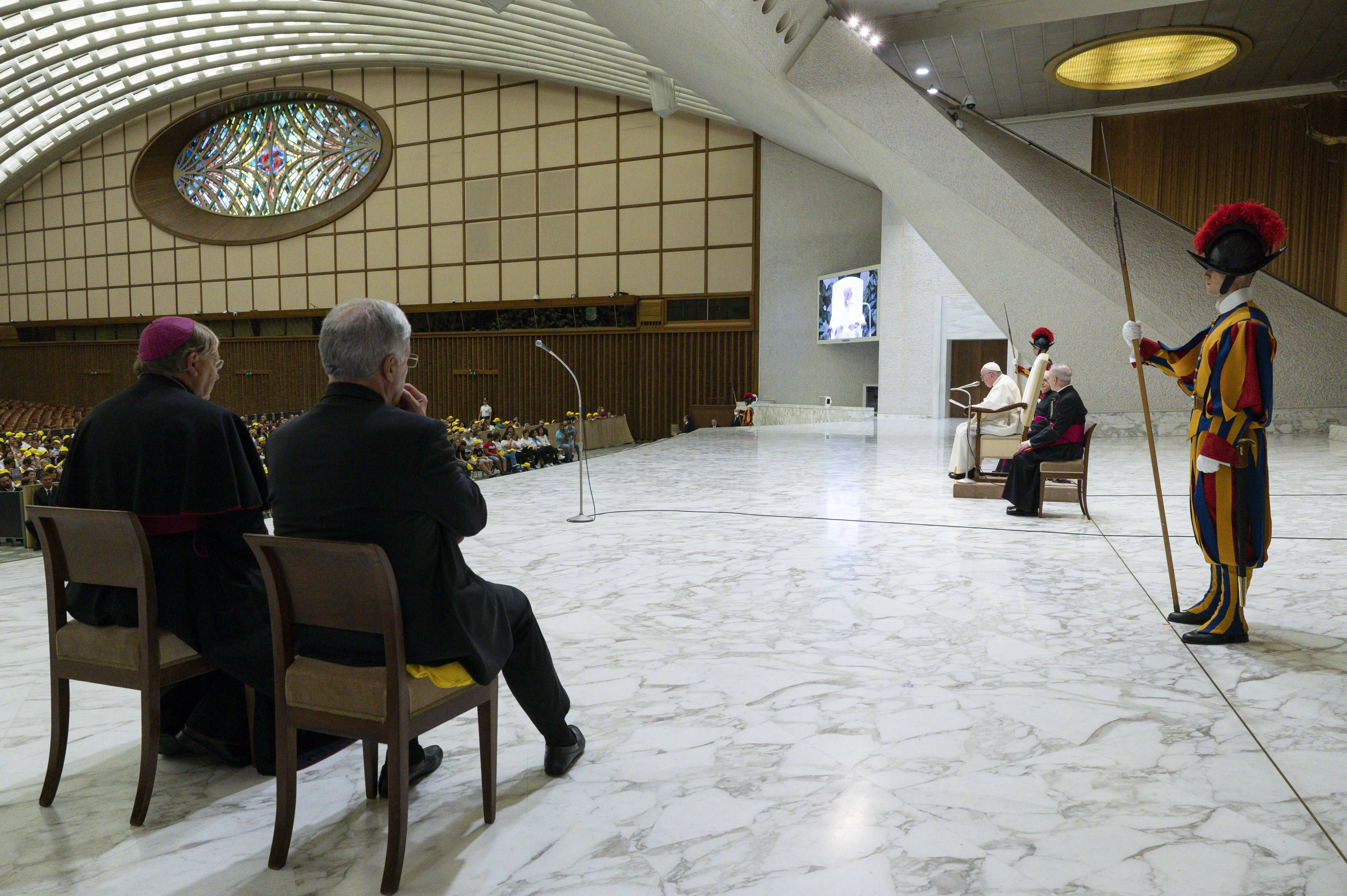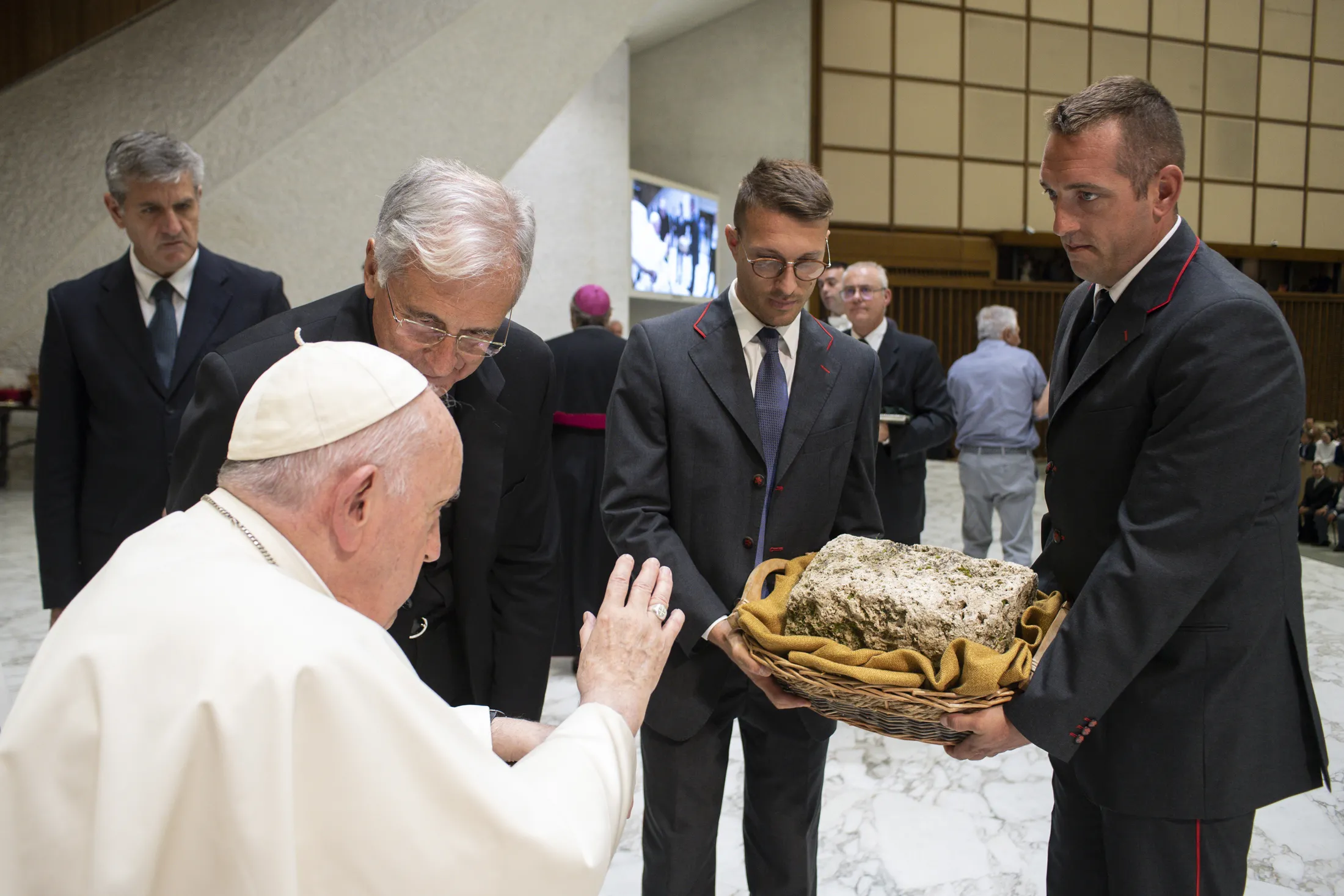
Vatican City, Sep 17, 2022 / 08:45 am (CNA).
Pope Francis on Saturday recalled the legacy of the 16th century pope Saint Pius V, a Church reformer who standardized the Mass and opposed heresy.
The teachings of Pius V “invite us to be seekers of the truth,” Francis said Sept. 17 in the Vatican’s Paul VI Hall to Catholics from northern and central Italy.
“Jesus is the Truth, in a sense that is not only universal but also communal and personal,” he said, “and the challenge is to live the search for truth in the daily life of the Church today, of Christian communities.”

The search for truth, Pope Francis said, “can only take place through personal and community discernment, starting from the Word of God.”
He explained that the Word of God comes alive in a particular way in the Mass, in both the Liturgy of the Word and the Liturgy of the Eucharist, “where we somehow touch the flesh of Christ.”
Saint Pius V, he said, reformed the liturgy of the Church, which was then further reformed four centuries later at the Second Vatican Council.
“In these years much has been said about the Liturgy, especially its external forms. But the greatest commitment must be placed so that the Eucharistic celebration actually becomes the source of community life,” Francis said.
He also recalled Saint Pius V’s commitment to recommending prayer, especially the rosary.
Saint Pius V was born Antonio Ghislieri in Bosco Marengo, Piedmont. The year 2022 marks the 450th anniversary of his death on May 1, 1572. His papacy began in 1566.
Pius V “faced many pastoral and governance challenges in just six years of his pontificate,” Pope Francis said. “He was a reformer of the Church who made courageous choices. Since then, the style of Church government has changed, and it would be an anachronistic mistake to evaluate certain works of Saint Pius V with today’s mentality.”
“So too, we must be careful,” he added, “not to reduce him to a nostalgic, stuffed memory, but to grasp his teaching and witness. With this insight, we can note that the backbone of his entire life was faith.”
Pope Francis also addressed young people who recently received or will receive the sacrament of confirmation. He reminded them of the importance of their baptism, and said if they do not know the date of their baptism, they should ask their parents, grandparents, or godparents.

He blessed a stone from the ancient Abbey of Saint Eutizio which will be used in the building’s reconstruction. The abbey, one of Italy’s oldest, was damaged in an earthquake in 2016.
“Boys and girls, today I bless each one of you to become a living stone to build the Christian community: living stone in the family, living stone in the parish, living stone in the company of friends, living stone in the sports environment… and so on,” the pope said.
If you value the news and views Catholic World Report provides, please consider donating to support our efforts. Your contribution will help us continue to make CWR available to all readers worldwide for free, without a subscription. Thank you for your generosity!
Click here for more information on donating to CWR. Click here to sign up for our newsletter.






John 18:37 Then Pilate said to him, “So you are a king?” Jesus answered, “You say that I am a king. For this purpose I was born and for this purpose I have come into the world—to bear witness to the truth. Everyone who is of the truth listens to my voice.”
John 18:38 Pilate said to him, “What is truth?”
John 14:6 Jesus said to him, “I am the way, and the truth, and the life. No one comes to the Father except through me.
John 8:32 And you will know the truth, and the truth will set you free.”
2 Timothy 3:16 All Scripture is breathed out by God and profitable for teaching, for reproof, for correction, and for training in righteousness,
Too many of us have our own mindset on matters of truth, To have God’s perspective is best. It always makes us better servants of the most high!
Young people, the boys and girls – they are the future pillars of Planet Earth. May each one of them be blessed with a happy present and a bright future.
Yes! May all come to know the saving grace of Jesus Christ as well